During IASLC’s 2022 North America Conference on Lung Cancer, five women who are leaders in the association and in the field of thoracic oncology came together for the Women’s Forum Networking Lunch.
During the panel, they discussed their successes as well as the challenges they’ve faced throughout their careers. Each panelist offered tips and advice for the other women in attendance. Here are some excerpts from the discussion.
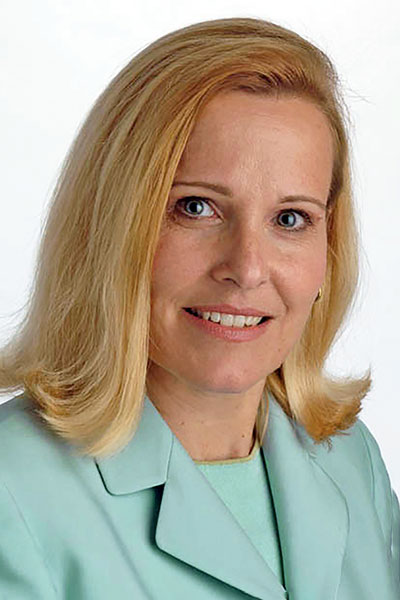
IASLC CEO Karen Kelly, MD
Like a lot of women, I feel like I have to be an A+ all of the time. I’ve learned you can’t be an A all the time. It’s ok to be a B. And sometimes you have to feel OK to be a C momentarily. It’s just temporary, but sometimes it’s necessary…
If a new opportunity comes up, I’m going to look at it and think about whether it’s something I want to do. I always want to grow as a person. Never stop looking for those challenges. Even if you think it might be too risky, think about it. Weigh the pros and cons.
Try to live every day to the fullest. I know that sounds corny, but as you get older you really do want to live fully every day.
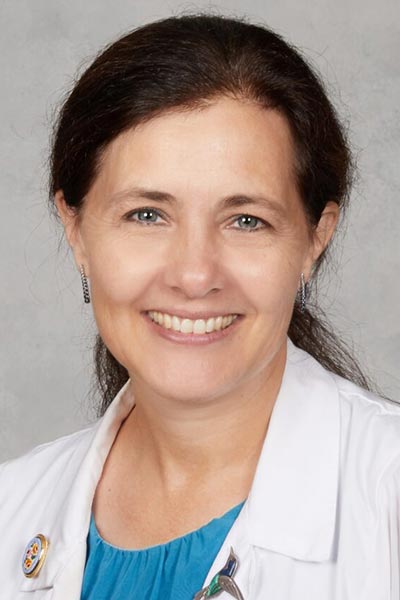
IASLC President Heather Wakelee, MD
Part of networking is figuring out ways to help people find the path that works for them. How do we open doors for each other? For early career women, figure out what works for you to meet others in the field. If you don’t know someone, they don’t know you. For those later in your career, rely on your network. It’s really important. It’s always been very apparent to me that we can find meaning from each other. Engaging people who are living parallel lives to us allows us to regain some of the energy we lose in our day-to-day.
There have been changes for the better in recent years. As a woman, you no longer have to say yes to everything. You can speak up. You won’t be the only woman in the room. And it’s OK to be who you are. You can tell people you’re a mother. You don’t have to hide the rest of you at work.
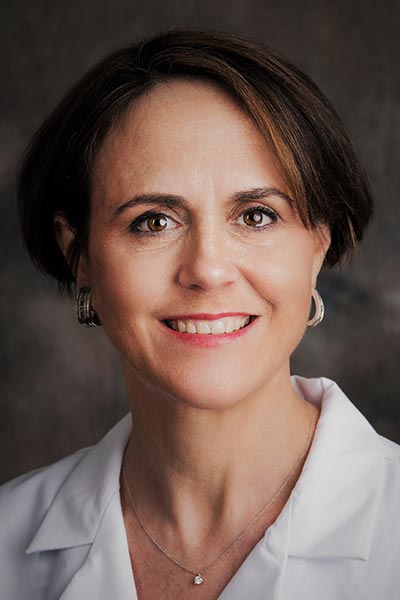
Jessica Donington, MD, MSCR
As a surgeon, I was often the only woman in the room. Surgery is only 4% women. I got here because I had a lot of wonderful mentors, and a lot of them have been men. I attribute a lot of my success to embracing strengths that I have that many of my male colleagues don’t. I’m known to be a very good mentor. I’m known to be very collaborative. I’m known to be self-deprecating. And I cannot say enough about the small, tight-knit network of women I’ve relied on in my career.
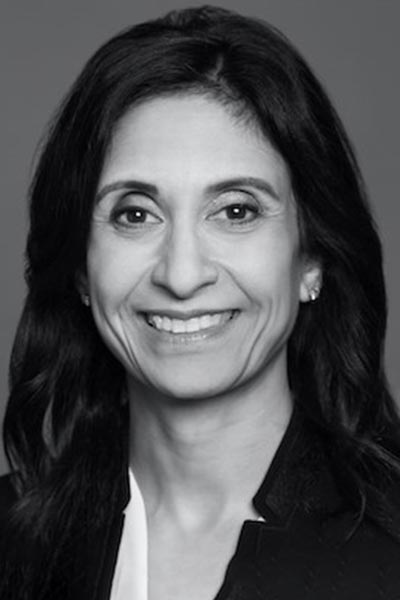
Jyoti Patel, MD
I was raised by physician mom, an immigrant from Africa living in Terre Haute, Indiana. She was the only woman delivering babies in southern Indiana for many years, so she’s always been a role model. I grew up watching a female physician who could balance, which helps me. So many of us struggle with balance because there are so many opportunities.
We have to be really intentional with what we say yes to. It’s easy to get distracted. Think about how you spend your time. Think about the things that make you happy. It’s important to recognize there are other people who do a really good job. Give others a chance to do things as well and don’t feel like you have to take on everything because you’re afraid you won’t be asked again.
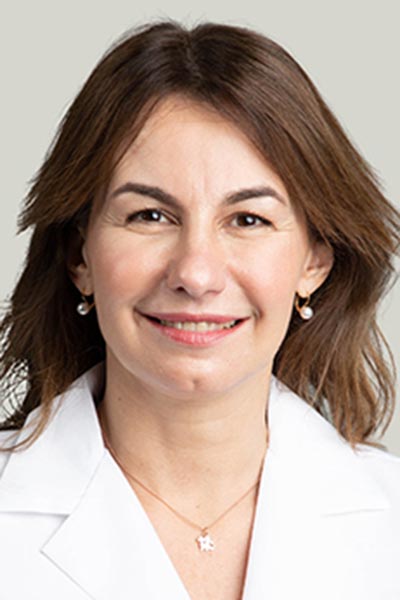
Be aspirational. Take risks.
Marina Chiara Garassino, MD
When I was at university my mother had breast cancer… I saw my mother survive for 10 years because of clinical trials. I was convinced I wanted to be a researcher. But it’s difficult to do research in Italy, so I created a group of oncologists. There were more than 1,000. I had a lot of friends—so many contacts. That networking has been really crucial.
I also want to share something as a mother. I worked very hard. Raising two children alone isn’t easy, but don’t be afraid to have a family or children. If I can do it, you can do it. Be full of hope. You will be fine. Do a lot of networking. Have a lot of friends. Stick together. And remember, just because you start in one place doesn’t mean you have to finish in that place.




